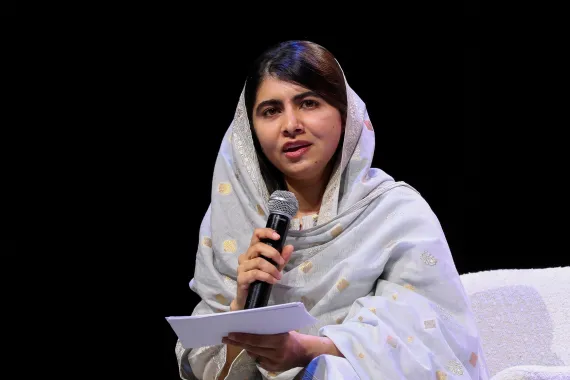
The Israeli war on Gaza has entered its ninth month. In this “hell on earth”, as the United Nations has described it, Palestinian women are exposed to unimaginable atrocities and suffering.
Women and children make up 70 percent of deaths from the Israeli army’s relentless bombardment.
Pregnant and lactating women face high health and malnutrition risks. There have been reports of Caesarean sections carried out without anaesthesia, births taking place in unsafe conditions, and miscarriages happening at unprecedented levels.
Palestinian women have also reported humiliation, torture and sexual violence at the hands of Israeli soldiers in detention. Hundreds of thousands of young women and girls have been deprived of education, as the Israeli army has systematically destroyed schools and universities.
The levels of violence and abuse that Palestinian women face are indeed devastating. This should be cause for concern and action for anyone who cares about women’s rights.
And, indeed, many advocates for women’s rights have spoken up. Among them is Nobel laureate Malala Yousafzai, who has released several statements, condemning violence against civilians and calling for a ceasefire. She has also donated $300,000 to charities supporting the Palestinian people.
But for many, Malala’s solidarity with the Palestinian people rang hollow when it was announced that she is co-producing the musical Suffs with Hillary Clinton. The news caused a lot of outrage, given Clinton’s unwavering support for Israel, rejection of calls for a ceasefire, and historic role in other conflicts in the region.
Many brought up past criticisms of Malala that she is a “puppet” of the West and a carrier of the white saviour complex narrative.
In a statement following the controversy, she insisted that there ought to be “no confusion” about her support for the people of Gaza and condemned the actions of the Israeli government. While it is commendable she sought to clarify her solidarity with the Palestinian people, she failed to distance herself from the powerful figures who are complicit in what is going on in Gaza.
By blaming only Israel, she overlooked the involvement of the West, especially the United States.
Since Israel’s war on Gaza began, the Biden administration has signed a $17bn package of military aid to Israel. It has vetoed a number of ceasefire resolutions at the UN Security Council and ignored condemnations by UN agencies. It has rejected an International Court of Justice provisional ruling that Israel may be committing genocide in Gaza and criticised the International Criminal Court’s prosecutor for seeking the arrests of Israeli officials, threatening to sanction him. President Joe Biden has even claimed in his speech, “What’s happening is not genocide.”
With her global influence, Malala can challenge the unconditional support of the US and the West for Israel. She can stand up to the structures of colonial dominance they are maintaining that cause so much suffering in Gaza and the rest of the Global South. Yet she continues to align herself with them.
Perhaps remaining silent on complicity is good for her fundraising efforts, but it ultimately hurts her cause. It also reduces her calls and statements on Gaza to performative activism – that is being committed to a cause only in words, but not in deeds.
This perfunctory approach to activism is also apparent in her decision to co-produce a musical that talks about the suffragist movement while only superficially addressing its racism and exclusion of Black women in the Jim Crow era.
Historically, the feminist movement in the West has predominantly represented white, middle-class women. It has prioritised their concerns while neglecting the experiences of those from marginalised groups. Any acknowledgement of their struggles has often been performative and self-serving.
We saw this in 2022, when Western women’s rights groups, activists and celebrities spoke up in support of women’s protests in Iran and some even cut their hair in solidarity. But many of them – including Clinton who called for Iran to be removed from the UN women’s commission – are now silent on the plight of Palestinian women and girls.
The white liberal feminist movement typically alienates marginalised women. One has to wonder then why Malala – a Muslim woman of colour – wants to align with this movement and its narrative. She should be working to dismantle the oppressive systems instead of giving in to them.
Malala would serve the women and girls of colour she claims to want to help much better if she renounces white feminism and embraces intersectional feminism, which identifies and acknowledges challenges faced by those who experience overlapping systems of oppression like sexism and racism.
Activists who engage with this concept in good faith cannot ignore the colonial and racist structures of domination that affect women’s and girls’ lives in the Global South and in marginalised communities in the Global North. They stand with women and girls of all colours and faiths and challenge oppression in all its forms, including white imperialist ones.
If Malala and others like her were to really stand up for Palestinian women and girls, they would not be co-producing musicals with Clinton. Instead, they would challenge her on her racist, colonial views and criticise her for her role in the US’s deadly colonial pursuits.
In the past, Malala has been praised for being bold and unapologetic in her fight for girls’ education. There is no reason why she cannot extend this drive to Gaza’s women and girls. With her unparalleled platform and influence, she can do much better than pander to white feminism.








